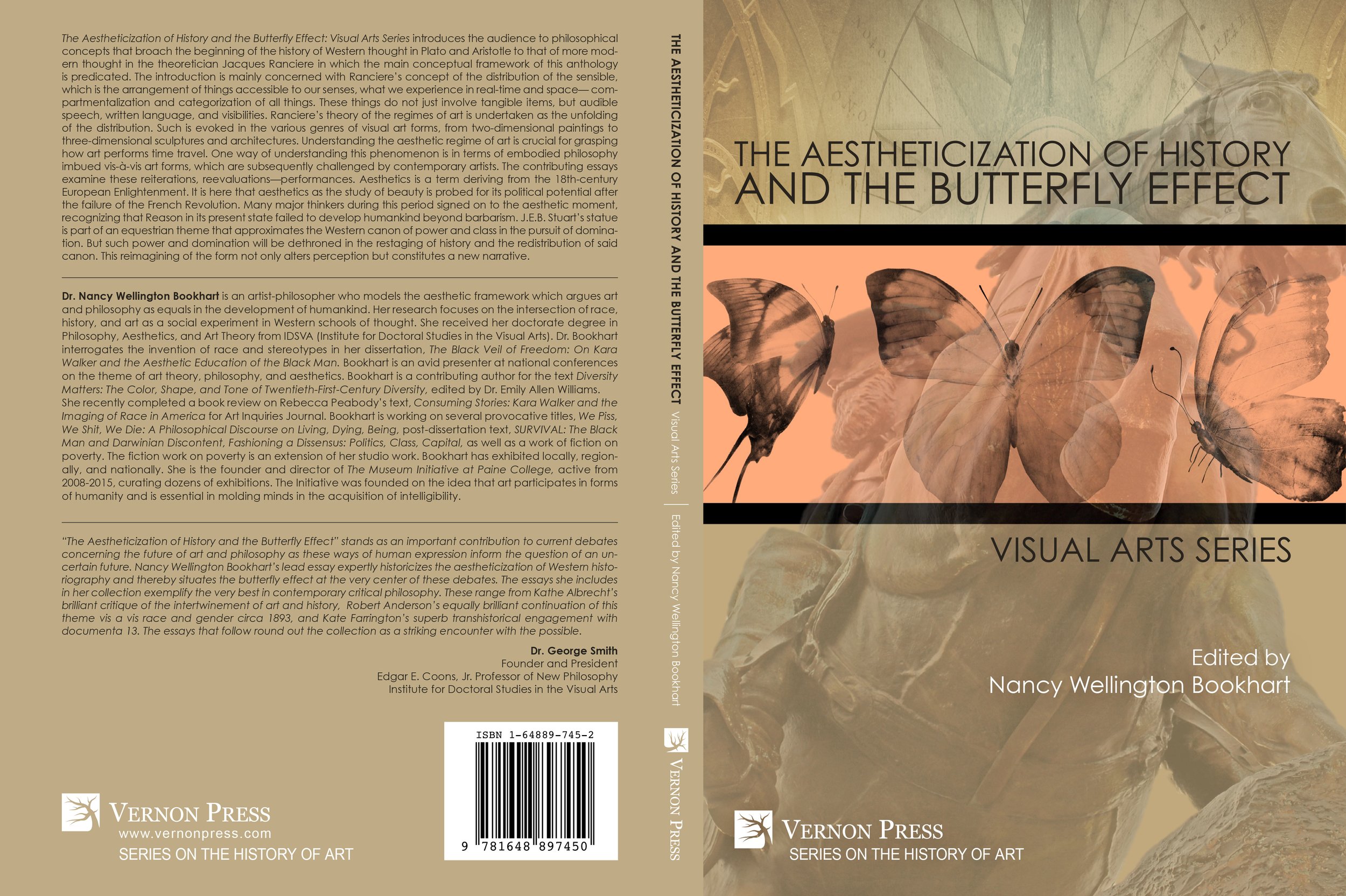“True, False, Fictive: Walid Raad’s Atlas Group Project and The Aesthetics of History, 1989-2004” in The Aestheticization of History and the Butterfly Effect: Visual Arts Series. Edited by Nancy Wellington Bookhart. Vernon Press. 2023.
This chapter looks to the artistic work of Walid Raad/The Atlas Group as a case study for the ways in which contemporary artists intervene in and revise history. Departing from widespread interest in Raad’s work with The Atlas Group as it relates to the historical evolution of contemporary art, this paper positions Raad’s fictional histories of the Lebanese Civil Wars as a criticism of the limited capabilities of traditional historiographic tools and corresponding media. Working with two projects housed in The Atlas Group archive, this paper demonstrates Raad’s time-traveling tendencies and highlights carefully orchestrated interchanges between fiction and non-fiction, primary- and secondary-source material, and historical events and their reconstruction. Building on psychologist James J. Gibson’s “concept of affordances,” this paper introduces the idea of “affordance histories” by situating the work of The Atlas Group as a network of potential histories focused less on what happened than the simultaneity of what may have happened, what may now happen, and what may happen again. Indifferent to the disparity between historical and fictional narratives, The Atlas Group is shown to revisit history in a manner Carlo Ginzburg claims was characteristic of the majority of historical writing before the seventeenth century: unconcerned with differentiating between speaker, reference and citation. In conclusion, this paper frames the work of Walid Raad/The Atlas Group as a catalyst for reanimating a centuries-old debate concerned with what should be included and excluded from the web of potentialities our historiographic tools and rhetoric make visible.
